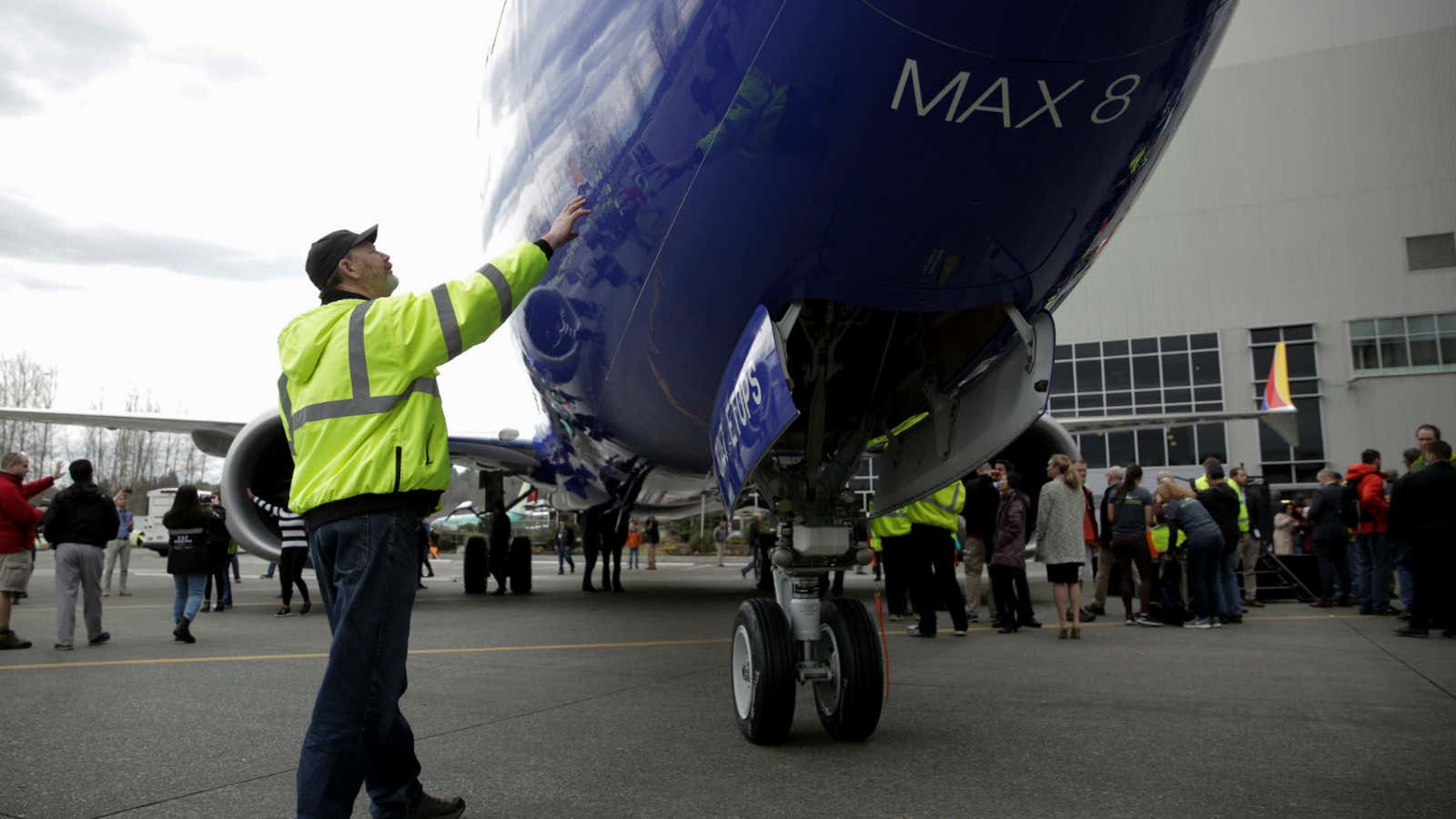India’s SpiceJet and Jet Airways airlines can continue to use their Boeing 737 Max 8 aircraft despite the recent crash of an Ethiopian Airlines flight operating this model.
Late yesterday (March 11), India’s civil aviation watchdog said its review of the popular Boeing model, undertaken a day after the crash in Ethiopia, revealed “no significant concerns.” However, as a precaution, the directorate general of civil aviation (DGCA) issued additional safety instructions for operating the aircraft, which has now been involved in two major crashes globally in less than five months.
Among other things, the DGCA has instructed that only senior pilots, with at least 1,000 hours of flying experience, should command a 737 Max 8. The DGCA has also advised stringent checks of the aircraft’s autopilot and stall management systems during long-transit stays.
The regulator said it is seeking suggestions from Boeing and the US Federal Aviation Administration (FAA) on additional safety checks. “The DGCA will continue to closely monitor the situation and may impose additional measures/restrictions,” the statement read.
The decision to not ground the aircraft will come as a relief for budget airline SpiceJet, India’s third-largest carrier by passengers flown in January. It currently flies 13 Boeing 737 Max 8 planes and has placed orders for 155 more, a SpiceJet official told Quartz.
The no-frills airline, expanding its international and domestic routes, had last month said it was betting on this model for growth. In the October-December 2018 quarter, SpiceJet added 12 new planes overall, nine of which were Boeing 737 Max 8s. “The new airplanes will enable SpiceJet to open new routes, while dramatically reducing the fuel and engineering costs, besides cutting down on noise pollution and greenhouse gas emissions,” the carrier had said while announcing its quarterly earnings last month.
Meanwhile, the financially-embattled Jet Airways, which flies five 737 Max 8s, said it is “currently not flying any of these aircraft.”
The single-aisle plane has earned a name in the aviation industry as a reliable workhorse, thanks to its minimum upkeep and ability to accommodate more passengers, making it a perfect fit for the price-sensitive Indian market.
Given that both SpiceJet and Jet Airways had hinged their growth plans on the 737 Max 8, the scrutiny of the aircraft is something both can do without at this juncture.
Global concerns
Alarm bells set off across the global aviation industry following the latest Max 8 crash, which occurred minutes after the flight bound for Nairobi, Kenya, took off from the Ethiopian capital Addis Ababa on March 10. In response to the tragedy, China and Indonesia, besides Ethiopian Airlines and Cayman Airways, decided to ground all their 737 Max 8 jets.
Four Indians were among the 157 passengers killed.
The incident immediately sparked memories of last October’s crash of a Boeing 737 Max 8 aircraft in Indonesia. The flight operated by Lion Air had plunged into the Java Sea minutes after it took off from Jakarta, sparking the first debates over the safety of Boeing’s most advanced aircraft. It later came to light that the 737 Max 8’s anti-stall sensors are prone to erroneous readings, which can cause it to plunge.
Following the Lion Air crash last year, the DGCA had reviewed the performance of Jet and SpiceJet’s 737 Max planes and issued advisories for pilots operating the aircraft. It had stated then that “there were no significant technical issues” with the planes.
